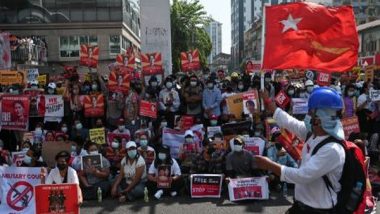Geneva [Switzerland], May 13 (ANI): A group of UN experts on Wednesday (local time) called on businesses in Myanmar to uphold their human rights responsibilities and put pressure on the military junta to halt grave human rights violations.
According to the Office of the UN High Commissioner for Human Rights (OHCHR), the military coup of February 1 has placed businesses with operations or business relations in Myanmar in a challenging situation.
"While some businesses have reiterated their public support for the rule of law and human rights, and cut ties with the junta, many continue to engage in business with the military as if nothing has happened," the UN experts said.
They urged companies to act in line with the Guiding Principles on Business and Human Rights to avoid contributing to human rights violations.
Surya Deva, Vice-Chair of the Working Group on Business and Human Rights said, "Because the risk of gross human rights violations has greatly increased in Myanmar, action by States and human rights due diligence by business, and investors, should be rapidly and proportionately heightened."
"Businesses, both individually and collectively, should exert the maximum leverage on the military in Myanmar to halt what the High Commissioner for Human Rights has said may amount to crimes against humanity," said the UN Special Rapporteur on the situation of human rights in Myanmar, Tom Andrews.
According to OHCHR, information suggests that the military's economic interests, including access to arms and technology, remain largely untouched and unchallenged by other States, and businesses operating in the country.
"The revenues that the military earns from domestic, and foreign businesses substantially enhances its ability and capacity to carry out these grave violations," Andrews added.
The UN experts further noted that possible steps, such as suspension of payments and financial flows that may aid the perpetration rights violations, should target the military and have the minimum possible negative impact on the rights of employees and the general population. (ANI)
(This is an unedited and auto-generated story from Syndicated News feed, LatestLY Staff may not have modified or edited the content body)













 Quickly
Quickly
















